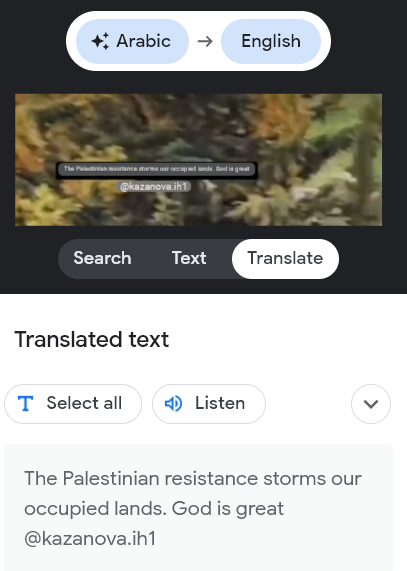NPR have published a piece titled A Gaza influencer built a following with feel-good videos. Now he mourns his family. In it, they describe how Gazan social media influencer Ibrahim Hassouna (aka Kazanova) “spent years building his Instagram audience of 440,000 followers by posting feel-good videos about his life in the Gaza Strip.” But now he mourns many members of his family, who were killed when Israel carried out a round of airstrikes in Rafah as a diversion to provide cover to forces as they escaped with two of our hostages.
Social media influencer Ibrahim Hassouna, 30 — who goes by the nickname Kazanova — spent years building his Instagram audience of 440,000 followers by posting feel-good videos about his life in the Gaza Strip. Some would feature his mom.
“I tend to spread positive energy,” Hassouna says. “But when the war started, there was no positive energy.”
—
In Gaza, young social media activists have attracted huge audiences worldwide, posting images of what it’s like to live under war.
Before the war, Hassouna worked as a promoter for restaurants and businesses, emceeing their events and posting videos on Instagram of daily life in Gaza.
His videos were all smiles and laughter.
One video he posted shows him on a joyride through Gaza City, in the passenger seat of a spacious car, with the sunroof open, holding a bouquet of flowers and blasting a song.
The next video he posted is a selfie on the couch at home: “I clean the bathroom, and do the dishes,” he begins.
“Liar,” his mom, Suzan, says in the background. He laughs.
Those two videos were from Oct. 6, 2023.
The next day, Hamas attacked Israel, killing around 1,200 people and taking more than 250 hostage, according to Israeli figures. Israel began bombing Gaza, killing, to date, more than 29,000 Palestinians, according to Gaza health officials.
Hassouna and his family fled their home in Gaza City, then fled again and again, as Israeli warplanes dropped leaflets instructing Palestinians to evacuate farther and farther south for their own safety.
He couldn’t resist posting images from the sites of Israeli bombings, but his mom wanted him to stay away from danger. He tried to cheer up his family and his followers on Instagram.
If NPR were engaged in proper journalism, they would question the prevailing narrative of Gaza as a “concentration camp” and “open-air prison” the second they saw the video of Kazanova in his luxury car, let alone his countless other feel-good videos showing the real Gaza.
They would not skip over the fact there are hostages in Gaza, a crime against humanity, let alone Israel’s need to rescue them.
They would also not quote credibly “Gaza health officials” aka Hamas for their Gaza casualty statistics.
They would question Kazanova’s reliability after seeing him posting a clearly AI-generated picture and trying to pass it off as real.
And they certainly would not mention his happy videos of October 6 and then his videos of “sites of Israeli bombings” post-October 7, skipping what he posted on October 7 itself:
The video shows Hamas terrorists in Israel (Sderot if I am not mistaken), on their way to a murderous rampage. The text Kazanova added to the video translates as “The Palestinian resistance storms our occupied lands. God is great.”

In other words, NPR either deliberately ignored “Mr Feelgood”‘s celebration of one of the worst atrocities to befall the Jewish people within the last 75 years or just chose to ignore it because it was inconvenient to their narrative. Either way, this is lethal journalism.
Updates:
25/2/24 10:25AM: Hidden towards the end of the article is this:
On the day of the Oct. 7 attack on Israel, he reposted a social media video of Palestinian militants driving through an Israeli city, celebrating it.
In hindsight, he criticizes both Hamas’ attack and Israel’s response.
“There were many things that could have been handled more appropriately,” he says.
If that was there when I wrote this post a few hours ago, I certainly did not see it. And assuming it was there and I missed it, why is it all the way near the bottom, almost as an afterthought? And why do they easily accept that he even though he celebrated their atrocities, he now criticizes them?



